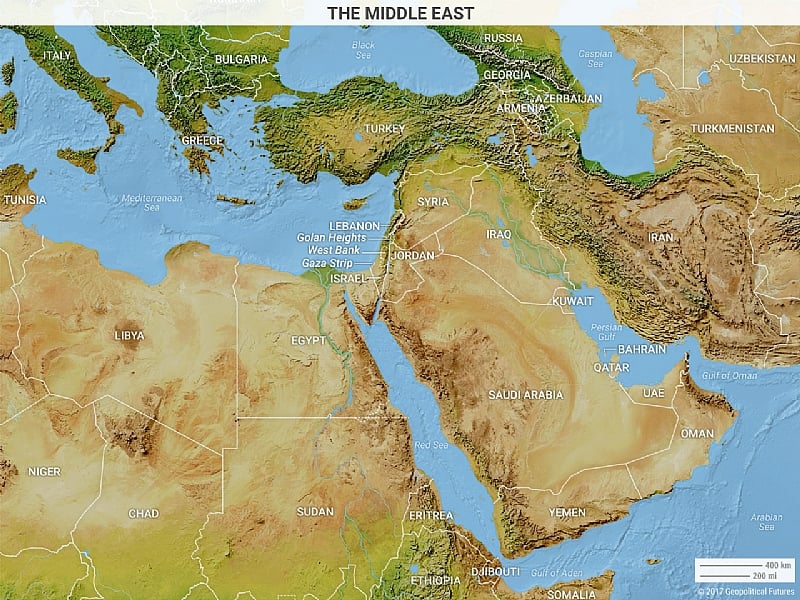This article draws upon insights from scholars, political analysts, and regional developments to explain a complex shift in Arab geopolitics. It is important to note that public opinion in the Arab world remains largely pro-Palestinian, even as many governments adopt new priorities.
In the turbulent politics of the Middle East, one would expect Arab nations to prioritize opposition to Israel, a State that has occupied Arab land, waged wars with its neighbors, and continues to expand settlements on Palestinian territory. And yet, a paradox emerges. Many Arab governments fear Iran more than Israel. This fear is not unfounded. As Dr. Vali Nasr, a prominent Middle East scholar and former adviser to the U.S. State Department, observes, “For the Sunni Arab monarchies, Iran represents not only a geopolitical rival, but a revolutionary force that threatens their very systems of governance”. To understand this dynamic, we must delve into history, sectarianism, strategic interests, and survival politics.
The Myth and Reality of ‘Greater Israel’
The concept of “Greater Israel” often surfaces in Arab nationalist rhetoric and Islamic discourse. It refers to the belief that Israel seeks to expand its borders from the Nile to the Euphrates, an idea drawn loosely from Biblical references (Genesis 15:18). Some cite early Zionist writings, such as those by Theodor Herzl or documents from the 1919 Paris Peace Conference, to support this. However, in modern times, no official Israeli government policy advocates this expansion. Still, the annexation of East Jerusalem, the occupation of the Golan Heights, and continued settlement expansion in the West Bank reinforce suspicions in the Arab world. As Palestinian historian Rashid Khalidi has warned, “Territorial ambitions may not be declared openly, but they are evident in the facts on the ground. Every new settlement outpost is a message of permanence”.
Yet, for many Arab regimes, Israel’s ambitions are seen as local and containable, whereas Iran’s influence is expansive, ideological, and destabilizing.
Iran, the Sectarian and Strategic Threat
Sunni versus Shia Power Struggles: Iran is the seat of Shia Islam, while most Arab countries are Sunni-majority. This divide has become politicized and militarized in the modern era. Saudi Arabia views itself as the defender of Sunni Islam and sees Iran as a rival theocracy with revolutionary ambitions. In Bahrain, a Sunni monarchy rules over a Shia-majority population, which the regime fears could be swayed by Iranian influence. In Iraq, the rise of Iran-backed Shia militias following the 2003 U.S. invasion has alarmed Arab leaders across the Gulf. Dr. Fawaz Gerges, professor at the London School of Economics, explains that “What terrifies Gulf Arab monarchies is Iran’s ability to weaponize identity and mobilize marginalized Shia communities across the region.”
Iran’s Proxy Network
Iran has masterfully employed a strategy of asymmetric warfare and proxy support, building influence without direct invasions. Key examples include Hezbollah in Lebanon, a powerful political and military force loyal to Tehran; Houthis in Yemen, locked in a devastating war with a Saudi-led coalition; Shia militias in Iraq, some of which are more loyal to Iran than Baghdad; and support for toppled Bashar al-Assad’s regime in Syria. This network forms what King Abdullah II of Jordan once called the “Shia Crescent”, a corridor of Iranian influence stretching from Tehran to Beirut.
Iran’s Revolutionary Identity
Unlike Israel, Iran exports an ideological mission. It seeks to inspire resistance movements, topple regimes it views as un-Islamic or pro-Western, and expand its influence through soft power and military backing. As General Qassem Soleimani (before his assassination in 2020) once declared, “Our goal is not just military superiority; it is the unification of Muslim lands under the banner of justice”. This message, while attractive to some, is deeply unsettling to Arab rulers.
Israel as a Containable Adversary
While Israel is disliked by much of the Arab public for its treatment of Palestinians, many Arab governments now see Israel as a rational, pragmatic actor. Israel is heavily restrained by international alliances, especially with the U.S. Israel is governed by democratic, secular-nationalist institutions, not religious revolutionaries, and a high-tech and intelligence powerhouse that offers valuable counter-terrorism cooperation.
The Abraham Accords
In 2020, the UAE, Bahrain, Sudan, and Morocco normalized ties with Israel under the Abraham Accords, brokered by the United States. This landmark moment revealed that many Arab states were ready to sideline the Palestinian issue in pursuit of national interests. Israeli Prime Minister Benjamin Netanyahu declared after the accords that “The old narrative that peace with the Arab world must come after peace with the Palestinians has been overturned”. Indeed, behind the scenes, even Saudi Arabia has increased quiet cooperation with Israel in intelligence-sharing, cyber defense, and mutual containment of Iran.
Sidestepped but Simmering Palestinian Issue
Publicly, most Arab states still express support for Palestinian rights, but privately. Many leaders prioritize economic development, security from internal unrest, and geopolitical alliances with the U.S. and Israel. Some analysts argue that Arab elites are suffering from “Palestinian fatigue.” As Dr. Marwan Muasher, former Jordanian foreign minister, noted, “There is a growing gap between Arab populations who care about Palestine and regimes who increasingly see it as a distraction from national priorities”.
This shift has created an uncomfortable double standard; one where Iran, despite supporting Palestine rhetorically, is still viewed as a greater enemy than the very state occupying Palestinian land.
Strategic Calculations
To summarize, the Arab world’s growing alignment with Israel and fear of Iran is not driven by ideology but by cold political calculations. Arab leaders may not trust Israel, but they fear Iran, especially its ability to stir unrest, sponsor revolts, and challenge the regional order from within.
FUSEINI ABDULAI BRAIMAH
+233550558008 / +233208282575
[email protected]


